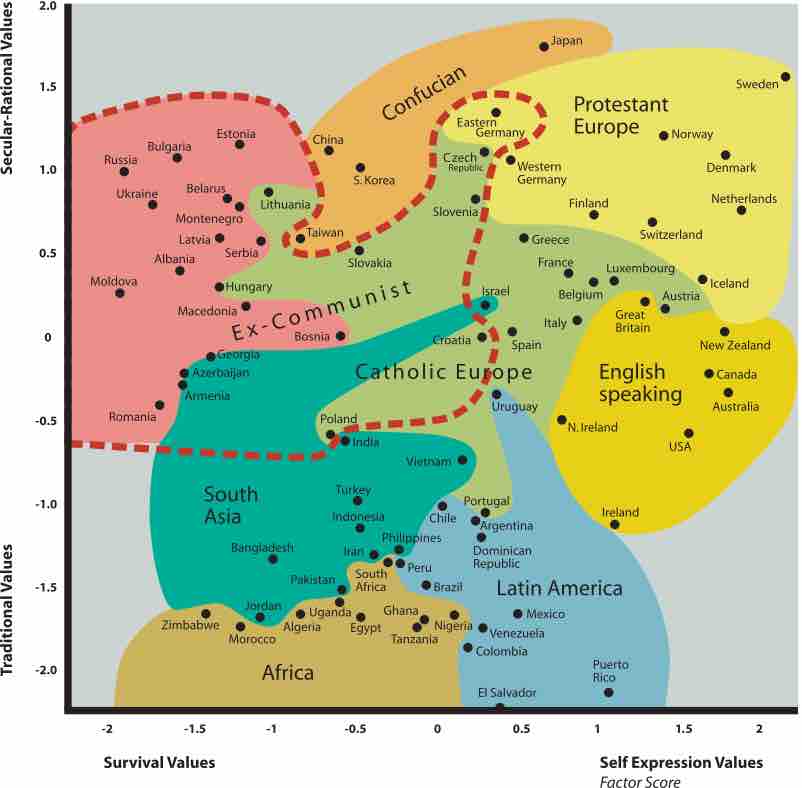People from different backgrounds tend to have different sets of values, or value systems. Certain values may cluster together into a more or less consistent system. A communal or cultural value system is held by and applied to a community, group, or society. Some communal value systems are reflected in legal codes and laws.
World Values Survey
Some sociologists are interested in better defining and measuring value clusters in different countries. To do so, they have developed what is called the World Values Survey, a survey of questions given to people around the world and used to identify different clusters of values in different regions. Over the years, the World Values Survey has demonstrated that people's beliefs play a key role in defining life in different countries—defining anything from a nation's economic development to the emergence of democratic institutions to the rise of gender equality .

World Values Survey
The World Values Survey is administered to people around the world. Their responses are aggregated and can be used to reveal regional value clusters, like those displayed in this map.
Trends
In general, the World Values Survey has revealed two major axes along which values cluster: (1) a continuum from traditional to secular values and (2) a continuum from survival to self-expression. Traditional values emphasize the importance of religion, parent-child ties, deference to authority, and traditional family values. People who embrace these values also reject divorce, abortion, euthanasia, and suicide. These societies have high levels of national pride and a nationalistic outlook. Secular values have the opposite preferences to the traditional values. These societies place less emphasis on religion, traditional family values, and authority. Divorce, abortion, euthanasia, and suicide are seen as relatively acceptable. Industrialization tends to bring a shift from traditional values to secular ones.
With the rise of the knowledge society, cultural change moves in a new direction. The transition from industrial society to knowledge society is linked to a shift from survival values to self-expression values. In knowledge societies, such as the United States, an increasing share of the population has grown up taking survival for granted. Survival values place emphasis on economic and physical security. It is linked with a relatively ethnocentric outlook and low levels of trust and tolerance. Self-expression values give high priority to environmental protection; tolerance of foreigners, gays, and lesbians; gender equality; and participation in decision-making as it relates to economic and political life.